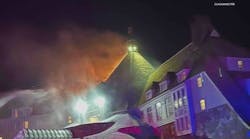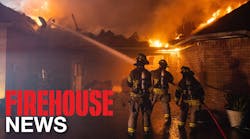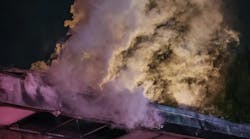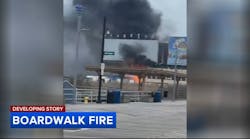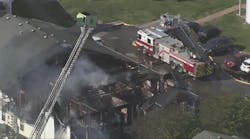Oct. 18--STOCKTON -- Jeff Piechura, chief of the Stockton Fire Department, issued a two-page written apology last week to his force for "upsetting comments" he made during a conference of fire chiefs two months ago.
But Greg Biddle, the president of the firefighters' union, said Thursday afternoon that the apology was "a weak attempt at damage control" and labeled it as "insincere."
The Record learned of Piechura's apology this week from a source familiar with the fire department. It asked for a copy from Connie Cochran, the city's spokeswoman, who complied with the request.
Piechura made his controversial remarks Aug. 14 at a conference of the International Fire Chiefs Association in Chicago, where he spoke on "Leading the New Fire Service Reality" and discussed the effect of budget cuts and the city's bankruptcy on the force he has led for the past year.
A recording of Piechura's comments has been passed around the department in recent weeks. Some members of the fire department feel Piechura's comments were critical of their efforts and were concerned about the implications of some of the remarks, Biddle said.
He added that the union is reviewing the remarks and has found many "inaccuracies." Biddle declined to share the recording until assembling an accompanying written report detailing the issue, a process he said could take two weeks. He said the union's focus right now is on helping to pass the city's upcoming sales-tax measures.
Piechura defended his apology this week during an interview.
"It was a sincere apology for hurting their feelings, but understanding that my job is to take this organization and adapt it to the new-world realities of fire service and the expectations of the community," he said.
The letter touched on three topics:
-- Piechura wrote that he has no plans to change the current schedule, in which firefighters are on duty for 48 hours, then off for 96. But he said 12,000 of 40,000 calls received by the department last year ended up being canceled, and he wants to reduce the number of "stubbed toe" calls his force receives.
The unnecessary calls, he said, interrupt the force's rest, training and equipment maintenance.
"I think some people thought I was going to change the schedule instead of trying to change the workloads," Piechura said.
Biddle said the union also wants to address the problem of "low-priority medical calls." But Biddle said that in the Chicago recording, Piechura makes it clear "he doesn't like the schedule."
-- Piechura wrote he is against reducing the staffing on ladder trucks from four to three. Before the economic crisis, ladder trucks had staffs of five. Piechura wrote that "any further reductions would create safety concerns and increased workloads." But he did not rule them out if there is another economic crisis, and he admits he was "surprised" they were avoided during 2010 layoffs.
Biddle said some employees who were laid off and then brought back to the department found these comments unsettling. "It doesn't give them a sense of stability or a sense their jobs are necessarily secure in the future," Biddle added.
-- Piechura refers in his apology to comments he made about "the legacy versus the contemporary" members of the force. He said he was referring to "folks who are safe" with traditional approaches to the job as opposed to "those who see the need to change."
Biddle said Piechura speaks in the recording about "avoiding" and "not engaging" with legacy employees. He said those comments were "not consistent with having an effective labor-management relationship."
Piechura admitted this week he does not believe his apology and explanation satisfied the concerns of Biddle and other members of the fire department, whose budget has decreased in the last few years by more than $12 million, to $41 million.
He said the department needs to transition from being "mostly a reactive force where we respond to emergencies and do just a bit of prevention more toward a proactive and secondarily reactive response force."
He added, "It's a wholistic approach, from response to prevention to long-term, long-range planning that incorporates community input and communicates it across all levels across the entire cultural and linguistic channels in the community."
Biddle responded, "I think there's always a benefit in being proactive. ... But when you're going through the past four or five years of reductions ... I think everybody is just trying to hold things together. Your focus is about trying to keep your heads above water."
Contact reporter Roger Phillips at (209) 546-8299 or [email protected]. Visit his blog at www.recordnet.com/phillipsblog.
Copyright 2013 - The Record, Stockton, Calif.
